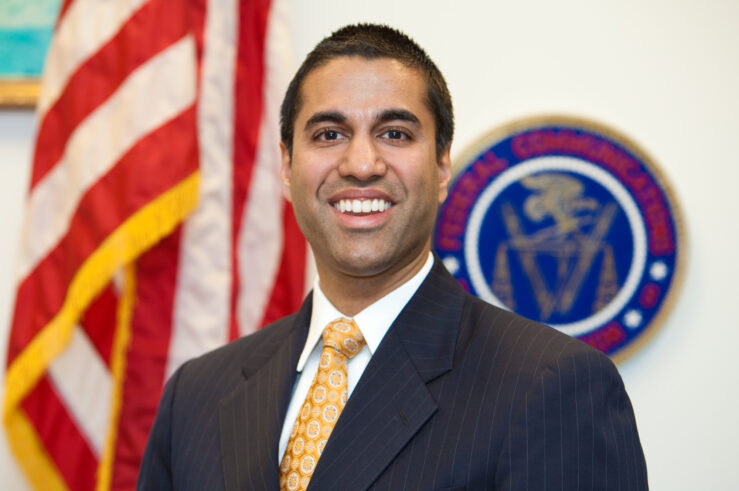Showing archive for: “Spectrum & Wireless”
The FTC’s PAE Study Recommendations: Case Not Proven
On October 6, 2016, the U.S. Federal Trade Commission (FTC) issued Patent Assertion Entity Activity: An FTC Study (PAE Study), its much-anticipated report on patent assertion entity (PAE) activity. The PAE Study defined PAEs as follows: Patent assertion entities (PAEs) are businesses that acquire patents from third parties and seek to generate revenue by asserting ... The FTC’s PAE Study Recommendations: Case Not Proven
Time to Repeal the FTC’s Common Carrier Jurisdictional Exemption (Among Other Things)?
Section 5(a)(2) of the Federal Trade Commission (FTC) Act authorizes the FTC to “prevent persons, partnerships, or corporations, except . . . common carriers subject to the Acts to regulate commerce . . . from using unfair methods of competition in or affecting commerce and unfair or deceptive acts or practices in or affecting commerce.” ... Time to Repeal the FTC’s Common Carrier Jurisdictional Exemption (Among Other Things)?
Acknowledging the Limitations of the FTC’s “PAE” Study
[Below is an excellent essay by Devlin Hartline that was first posted at the Center for the Protection of Intellectual Property blog last week, and I’m sharing it here.] ACKNOWLEDGING THE LIMITATIONS OF THE FTC’S “PAE” STUDY By Devlin Hartline The FTC’s long-awaited case study of patent assertion entities (PAEs) is expected to be released this spring. ... Acknowledging the Limitations of the FTC’s “PAE” Study
Netflix and net neutrality: Hypocritically screwing over Internet users since 2015!
Netflix’s latest net neutrality hypocrisy (yes, there have been others. See here and here, for example) involves its long-term, undisclosed throttling of its video traffic on AT&T’s and Verizon’s wireless networks, while it lobbied heavily for net neutrality rules from the FCC that would prevent just such throttling by ISPs. It was Netflix that coined ... Netflix and net neutrality: Hypocritically screwing over Internet users since 2015!
Reed on the Apple e-books case: “We can remember it for you wholesale” – why the model matters in Apple e-books
In Philip K. Dick’s famous short story that inspired the Total Recall movies, a company called REKAL could implant “extra-factual memories” into the minds of anyone. That technology may be fictional, but the Apple eBooks case suggests that the ability to insert extra-factual memories into the courts already exists. The Department of Justice, the Second ... Reed on the Apple e-books case: “We can remember it for you wholesale” – why the model matters in Apple e-books
The FCC distorted market realities to scuttle the Comcast-TWC merger
Last week, FCC General Counsel Jonathan Sallet pulled back the curtain on the FCC staff’s analysis behind its decision to block Comcast’s acquisition of Time Warner Cable. As the FCC staff sets out on its reported Rainbow Tour to reassure regulated companies that it’s not “hostile to the industries it regulates,” Sallet’s remarks suggest it will ... The FCC distorted market realities to scuttle the Comcast-TWC merger
The FTC, not the FCC, Should Police Internet Abuses
The FCC’s proposed “Open Internet Order,” which would impose heavy-handed “common carrier” regulation of Internet service providers (the Order is being appealed in federal court and there are good arguments for striking it down) in order to promote “net neutrality,” is fundamentally misconceived. If upheld, it will slow innovation, impose substantial costs, and harm consumers ... The FTC, not the FCC, Should Police Internet Abuses
FCC restrictions on joint sales agreements: Yet another FCC rule without basis in evidence or economics
Recently, Commissioner Pai praised the introduction of bipartisan legislation to protect joint sales agreements (“JSAs”) between local television stations. He explained that JSAs are contractual agreements that allow broadcasters to cut down on costs by using the same advertising sales force. The efficiencies created by JSAs have helped broadcasters to offer services that benefit consumers, ... FCC restrictions on joint sales agreements: Yet another FCC rule without basis in evidence or economics
Microsoft’s mobile innovation today undercuts arguments built on yesterday’s Microsoft antitrust case
Last year, Microsoft’s new CEO, Satya Nadella, seemed to break with the company’s longstanding “complain instead of compete” strategy to acknowledge that: We’re going to innovate with a challenger mindset…. We’re not coming at this as some incumbent. Among the first items on his agenda? Treating competing platforms like opportunities for innovation and expansion rather ... Microsoft’s mobile innovation today undercuts arguments built on yesterday’s Microsoft antitrust case
The companies that actually manufacture networks and devices oppose Title II, which may be all you need to know
It’s easy to look at the net neutrality debate and assume that everyone is acting in their self-interest and against consumer welfare. Thus, many on the left denounce all opposition to Title II as essentially “Comcast-funded,” aimed at undermining the Open Internet to further nefarious, hidden agendas. No matter how often opponents make the economic ... The companies that actually manufacture networks and devices oppose Title II, which may be all you need to know
Microsoft’s Android Anathema
Microsoft wants you to believe that Google’s business practices stifle competition and harm consumers. Again. The latest volley in its tiresome and ironic campaign to bludgeon Google with the same regulatory club once used against Microsoft itself is the company’s effort to foment an Android-related antitrust case in Europe. In a recent polemic, Microsoft consultant (and business ... Microsoft’s Android Anathema
Net Neutrality Regulation is Bad for Consumers and Probably Illegal
TechFreedom and the International Center for Law & Economics will shortly file two joint comments with the FCC, explaining why the FCC has no sound legal basis for micromanaging the Internet—now called “net neutrality regulation”—and why such regulation would be counter-productive as a policy matter. The following summarizes some of the key points from both ... Net Neutrality Regulation is Bad for Consumers and Probably Illegal






